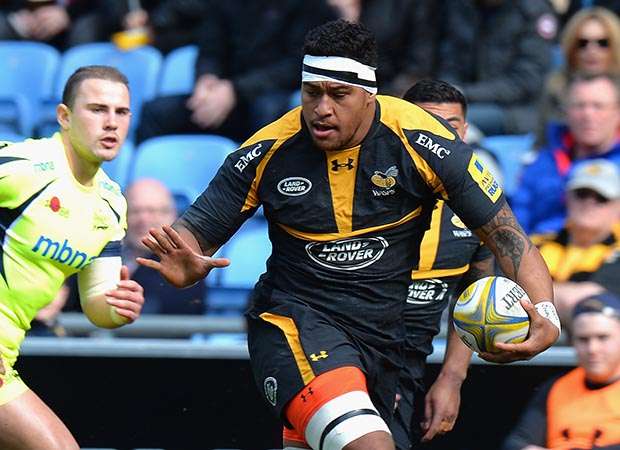 Money, money, money. Why are the clubs surprised that the highly publicised new deal between the RFU and PRL has seen players' agents looking to capitalise on the extra it can bring them?
Money, money, money. Why are the clubs surprised that the highly publicised new deal between the RFU and PRL has seen players' agents looking to capitalise on the extra it can bring them?
The vastly increased revenues and bonuses for clubs that fulfil the RFU's match-day criteria were always going to give the agents of the better players a lever in any new contract negotiations and up the ante for all.
While stating the obvious that clubs cannot exist without players, more importantly in the professional era are the spectators that pay the day-to-day running costs of the clubs.
With a large percentage, if not all the RFU windfall going on the wages of players, coaches and administrators, clubs need to attract a regular and large group of spectators to watch their games and the simplest way to do that is field a team full of stars and hope that brings success.
As Toulon have shown in the Top14, if you have an owner prepared to take a long-term view and keep buying foreign international stars, at some point you will be successful even if it is at the expense of your national team.
The Top14 are well ahead of PRL when it comes to developing a level of spectator support that can, and do, fund the clubs. Most are town/city clubs similar to Exeter, Bath, Leicester and Gloucester and manage to attract large crowds on a weekly basis.
The French have the added advantage of not having to pay for their stadia, which reduces club costs and allows them to spend more on players without affecting facility development.
There is a school of thought suggesting that the EQP section of the RFU payments package could help the Championship win their current extra funding argument.
Some argue that providing extra funding to the Championship will help create a larger number of international quality players, which in turn will help to reduce wage bills and stop foreign imports. Sadly, they are wrong.
Funding the Championship is necessary to make sure it is a strong enough competition so the Premiership continues to raise its standards, rather than allowing what are essentially ring-fenced clubs to stagnate in the knowledge that they cannot be replaced.
Any additional funding to the Championship will not change the RFU-PRL agreement which restricts the selection of players for the EPS and England Saxons squad to solely from the Premiership. So, if not contingent on EQPs, it could possibly have a detrimental long-term outcome to development of local talent.
All agree that there are a number of clubs in the Championship happy to be where they are with little or no ambition to reach the Premiership. They survive as a form of Premiership academy with dual registered players making up their squads.
Despite what a number of Premiership club bosses say, it has always been cheaper to import players, admittedly not the former international stars, than employ English players.
One of the main reasons the South Sea Islands struggle to hold on to their players is because the game here pays far more than back home, Australia, or New Zealand. As young players look for a professional career, English clubs at all levels offer an attractive option, even if it's just at a grassroots club level, providing a job and living accommodation.
One way they can be used to reduce wage bills is for players who are signed up by Premiership clubs to be put out on dual contracts to Championship clubs until they become EQP.
Signed to a long-term contract at relatively low wages, they could be used to undercut English-born players by potentially reducing playing opportunity and forcing the journeyman player's wages lower when the imported players return to their Premiership club.
For those who think this is just a supposition on my part, I would point out that it has already happened. Many of the southern hemisphere players without historic family connection to England such as Nathan Hughes, Mako and Billy Vunipola and Manu Tuilagi, have played in our system becoming England qualified through residence, adding to the number of EQP in the match-day squads of their clubs.
These are just some of the high profile players but there are plenty more that sail under the radar whilst still offering a cheaper alternative for the clubs as EQPs than their English counterparts.
I have to say if World Rugby vice chairman Agustin Pichot does manage to tighten the international qualification rules governing when a player becomes eligible to play for a country, I doubt it will be made retrospective. If it were to be, it could have dramatic impact on a number of countries' national teams and the English clubs particularly, where a number of players could lose their EQP status plus incumbent match-day squad funding the clubs currently get.
* News that England shirts are on sale but have not dramatically changed from last year must be good news for parents! The thing supposed to make them different is the body mapping technology used to ensure they fit each player perfectly, I can't wait to be mapped for mine!


























